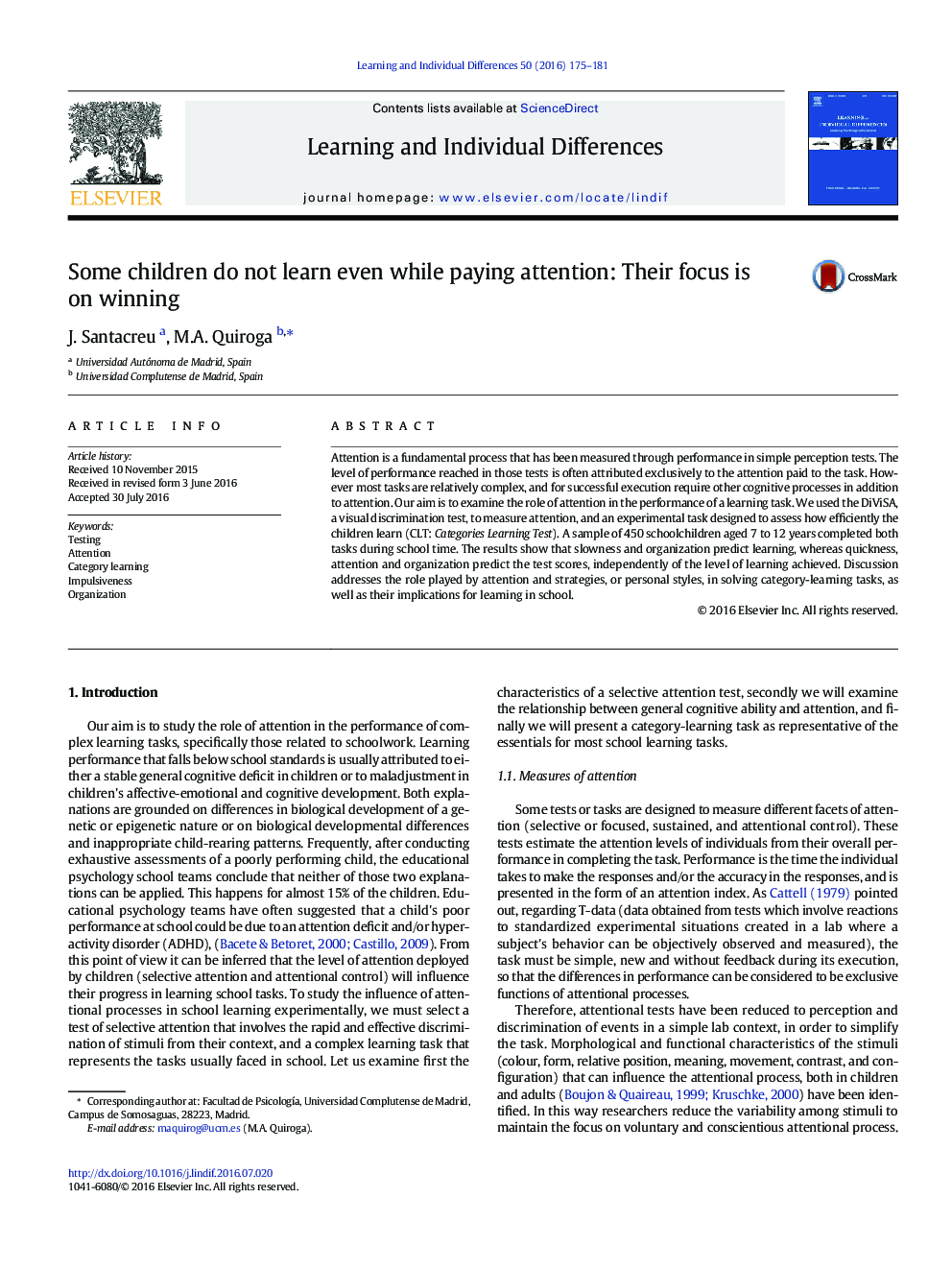| Article ID | Journal | Published Year | Pages | File Type |
|---|---|---|---|---|
| 6844596 | Learning and Individual Differences | 2016 | 7 Pages |
Abstract
Attention is a fundamental process that has been measured through performance in simple perception tests. The level of performance reached in those tests is often attributed exclusively to the attention paid to the task. However most tasks are relatively complex, and for successful execution require other cognitive processes in addition to attention. Our aim is to examine the role of attention in the performance of a learning task. We used the DiViSA, a visual discrimination test, to measure attention, and an experimental task designed to assess how efficiently the children learn (CLT: Categories Learning Test). A sample of 450 schoolchildren aged 7 to 12Â years completed both tasks during school time. The results show that slowness and organization predict learning, whereas quickness, attention and organization predict the test scores, independently of the level of learning achieved. Discussion addresses the role played by attention and strategies, or personal styles, in solving category-learning tasks, as well as their implications for learning in school.
Related Topics
Social Sciences and Humanities
Psychology
Developmental and Educational Psychology
Authors
J. Santacreu, M.A. Quiroga,
